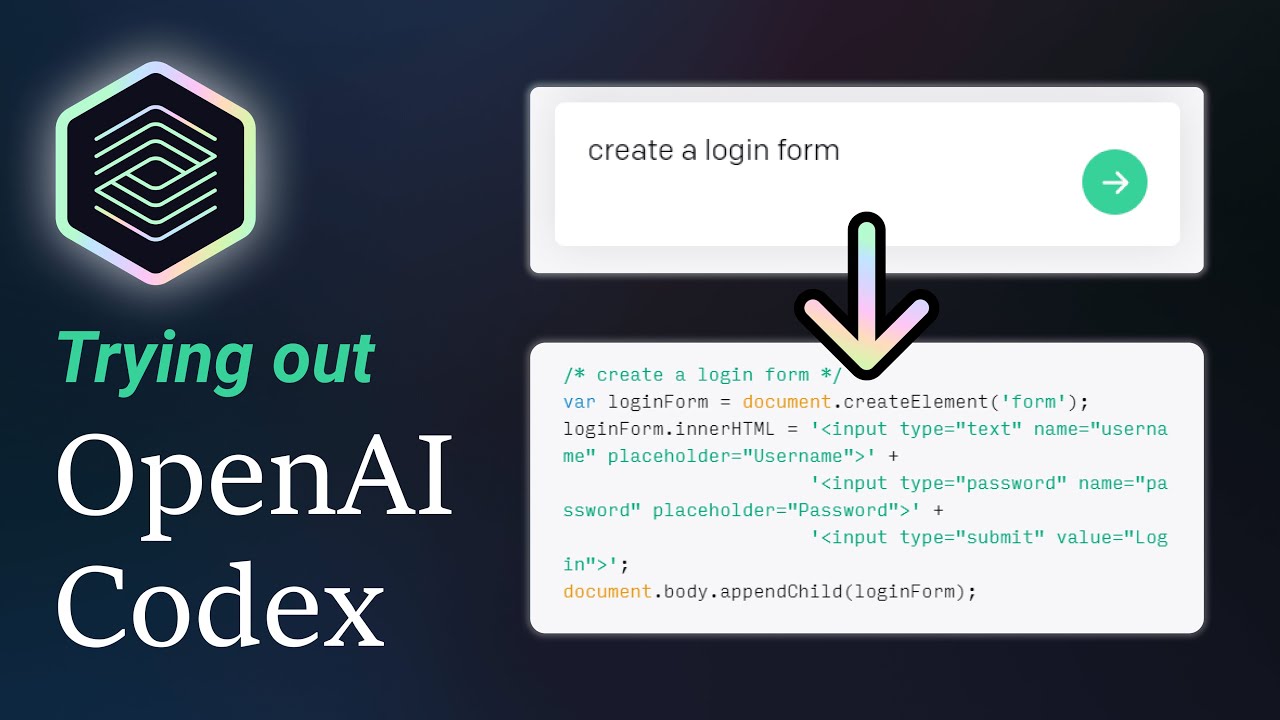OpenAI Codex

In the realm of artificial intelligence, OpenAI Codex stands tall as a groundbreaking advancement, poised to revolutionize the landscape of programming and beyond. Codex represents a culmination of cutting-edge research and innovation, offering a glimpse into a future where machines can comprehend and generate human-like code effortlessly. This article delves into the intricacies of OpenAI Codex, exploring its capabilities, implications, and the transformative potential it holds for various industries and society at large.
Table of Contents
ToggleUnderstanding OpenAI Codex:
OpenAI Codex is an AI model developed by OpenAI, built upon the foundation of GPT (Generative Pre-trained Transformer) architecture. Trained on a vast corpus of programming languages, including Python, JavaScript, Java, C++, and many others, Codex exhibits a remarkable ability to understand and generate code across multiple domains and paradigms. Leveraging deep learning techniques, Codex interprets natural language prompts and produces corresponding code snippets, ranging from simple functions to complex algorithms.
Capabilities of OpenAI Codex:
The versatility of OpenAI Codex is truly remarkable, offering a wide array of capabilities that extend far beyond traditional programming assistance:
Code Generation:
Codex excels at generating code snippets based on natural language descriptions provided by users. Whether it’s implementing specific functionalities, debugging existing code, or crafting entire programs from scratch, Codex demonstrates a remarkable aptitude for translating human intent into executable code.
Auto-completion and Suggestions:
Codex serves as an intelligent assistant, offering auto-completion suggestions and contextually relevant recommendations during the coding process. This feature not only enhances productivity but also assists developers in exploring alternative solutions and optimizing their code.
Code Translation:
With its proficiency in multiple programming languages, Codex facilitates seamless code translation across different platforms and frameworks. Developers can effortlessly convert code snippets from one language to another, streamlining the process of cross-platform development and interoperability.
Documentation Generation:
Beyond coding, Codex proves invaluable in generating comprehensive documentation for software projects. By synthesizing code annotations, comments, and explanations, Codex simplifies the task of documenting codebases, ensuring clarity and maintainability.
Natural Language Understanding:
Codex possesses a deep understanding of natural language, enabling it to comprehend complex instructions, specifications, and requirements. This capability extends its utility beyond conventional programming tasks, empowering users to engage with Codex in diverse contexts, including project management, data analysis, and technical writing.
Implications of OpenAI Codex:
The advent of OpenAI Codex carries profound implications across various domains, reshaping the landscape of software development, education, and beyond:
Democratizing Programming:
By democratizing access to advanced programming assistance, Codex lowers barriers to entry for aspiring developers and non-technical users alike. Novices can leverage Codex to learn programming concepts in a more intuitive manner, while experienced developers can augment their productivity and tackle more ambitious projects with ease.
Accelerating Innovation:
Codex accelerates the pace of innovation by streamlining the coding process and fostering experimentation. Developers can iterate rapidly, explore new ideas, and prototype solutions efficiently, leading to faster development cycles and breakthrough discoveries in technology.
Enhancing Accessibility:
Codex promotes inclusivity and accessibility within the programming community by providing tailored support for individuals with diverse learning styles and disabilities. Its intuitive interface and adaptive feedback mechanisms accommodate users of varying skill levels and backgrounds, fostering a more inclusive and supportive ecosystem.
Transforming Education:
In the realm of education, Codex serves as a powerful tool for enhancing computational thinking and programming literacy. Educators can leverage Codex to facilitate hands-on learning experiences, engage students in collaborative coding exercises, and personalize instructional content to meet individual learning needs.
Redefining Human-Machine Collaboration:
Codex exemplifies the potential for synergistic collaboration between humans and machines, where AI serves as a creative partner rather than a mere tool. By augmenting human intelligence and expertise, Codex enables teams to tackle complex challenges more effectively and harness the collective wisdom of human and machine intelligence.
Challenges and Considerations:
Despite its remarkable capabilities, OpenAI Codex also raises important ethical, technical, and societal considerations:
Bias and Fairness:
As with any AI model, Codex is susceptible to biases present in its training data, which may inadvertently perpetuate disparities and inequalities within the software industry. Ensuring fairness, transparency, and accountability in Codex’s decision-making processes is essential to mitigate potential harm and promote ethical use.
Security and Privacy:
Codex’s ability to generate code based on natural language prompts raises concerns regarding security vulnerabilities and privacy risks. Safeguarding sensitive information, protecting intellectual property, and mitigating potential misuse of Codex’s capabilities are paramount to maintaining trust and confidence in its deployment.
Legal and Regulatory Compliance:
The proliferation of AI technologies such as Codex necessitates robust legal and regulatory frameworks to address intellectual property rights, liability issues, and compliance with data protection regulations. Clear guidelines and standards are essential to govern the responsible development, deployment, and usage of Codex in accordance with ethical principles and legal obligations.
Skills Augmentation vs. Automation:
While Codex augments human skills and capabilities, there is a legitimate concern about its potential impact on job displacement and the future of work. Striking a balance between skills augmentation and automation, while ensuring equitable distribution of opportunities and resources, is crucial to mitigate socio-economic disruptions and foster inclusive growth.
Conclusion:
OpenAI Codex represents a paradigm shift in the field of artificial intelligence, unleashing a new era of human-machine collaboration and innovation. Its ability to understand and generate code in natural language heralds a future where programming becomes more accessible, intuitive, and inclusive. By harnessing the transformative power of OpenAI Codex responsibly and ethically, we can unlock boundless possibilities and pave the way for a more prosperous and equitable society. As we embark on this journey of exploration and discovery, let us embrace the potential of Codex to shape a brighter future for generations to come.





